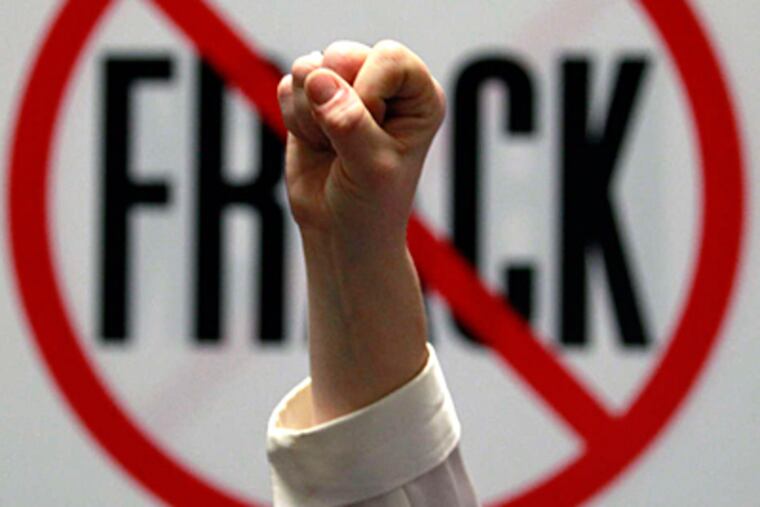Towns win a round in court against unfettered fracking
TRY TO IMAGINE that you live in a nice suburban residential neighborhood and someone wants to open up an industrial chicken farm nearby — or maybe a fireworks factory or a steel mill. Surely, local zoning laws would not permit it, just as they would prohibit other commercial and industrial uses of residential areas.

TRY TO IMAGINE that you live in a nice suburban residential neighborhood and someone wants to open up an industrial chicken farm nearby — or maybe a fireworks factory or a steel mill.
Surely, local zoning laws would not permit it, just as they would prohibit other commercial and industrial uses of residential areas.
But Act 13, Pennsylvania's giveaway to the fracking industry, would allow natural-gas drilling in nearly any neighborhood where drillers want to drill, including towns whose zoning does not allow it. And there would be nothing you — or the local leaders you elected to protect your quality of life — could do about it.
As part of a law that created impact fees for hydraulic fracturing, Act 13 allows natural-gas drilling in every zoning district, with some buffers: drilling has to be 300 feet from springs, rivers and wetlands; 500 feet from buildings and water wells, and 1,000 feet of drinking-water sources. The state law forces local municipalities to rewrite their zoning rules to conform to these provisions or lose impact fees from drilling.
Seem undemocratic, unfair, maybe even unconstitutional? That's what seven municipalities, including Nockamixon Township and Yardley Borough in Bucks County, argued. Last week, Commonwealth Court agreed, but just barely.
In a 4-3 decision, the court said the state did not have the right to strip local municipalities of zoning rights solely for the benefit of the hydraulic-fracturing industry — and only that industry.
Within a day, Gov. Corbett announced that he would appeal the decision to the state Supreme Court. If the high court upholds longstanding principles of zoning and property rights, it will strike down this anti-democratic law passed in haste by the Legislature in February. And that may buy some time to finally exercise some due scientific diligence on the industry.
In fracking, a mixture of water, sand, and a secret (to ordinary people, anyway) cocktail of chemicals is injected into the ground under high pressure to break through rock and release oil and natural gas. While the industry claims there is no conclusive proof that fracking hurts the environment, in many areas fracking wells and waste pits have been accompanied by contaminated and even flammable drinking water, earthquakes and a host of physical health symptoms.
We do not understand how Pennsylvania legislators of either party find it so easy to pass laws that ignore potential health and environmental hazards — as if their own health and that of their families and neighbors were somehow exempt from contamination and illness.
But put aside the environmental and health issues. Why should one business be able to negate the rules that other businesses, from widget factories to retail stores, have had to follow for decades, simply because they have some high-placed Friends in Pennsylvania?
As state Rep. Tim Briggs, D-Montgomery, puts it, the state seems headed toward repeating the devastation left by the coal barons a century ago.
The Supreme Court should slow the Pennsylvania Gas Rush by blocking the implementation of Act 13. If Pennsylvania legislators don't want to protect their constituents, at least local municipal leaders should be allowed to do it.